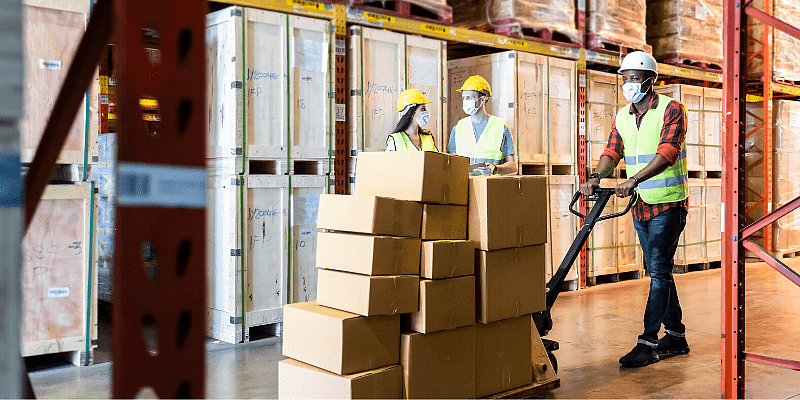The past two years have been transitional for the logistics industry.
With the world coming to a standstill, the logistics sector, which was not only labour intensive but also driven basis a lot of external factors, including technology, manpower, government support, cross-border business functioning, and a lot more, was in chaos.
The industry gained a lot of popularity in the recent past, given the rise of awareness around strategic business functioning, streamlined operations, and the financial impact it brought to an organisation.
With a heavy focus on the latest technology to support the business, logistics companies are relooking and restructuring the way traditional businesses are done.
The impact of COVID-19
In 2020, the logistics and relocation industry suffered greatly due to the constant vigorous changes occurring in the industry. With time, the industry adopted various strategic changes that manifested positively.
An efficient network of logistics and supply chain became important to smoothly tackle the pandemic and support people who were affected the most.
This was the first time ever when logistics companies collaborated irrespective of their fields to ensure that business continuity and medical essentials were made available to people.
Logistic companies play a very crucial role when it comes to connecting individual businesses to the marketplace via their multifield services, including freight forwarding, relocation of HHG items, warehousing, inventory management, and multimodal transportations.
Hence, when the world came to a halt, businesses were left with no other option but to innovate to stay relevant. The growing concern over operational efficacy, need for hygienic services, business continuity support, and essential item/equipment moving led to the boost of the logistics market globally.
The latest technological advancements, such as GPS tracking and software implementation for efficient work processes, ensured the global logistics industry has a head-up for growth in the post-COVID-19 era.
Along with the travel and tourism industry, the logistics and supply chain network were negatively impacted, given the economic growth, competitiveness, and talent creation in the industry, amidst the COVID-19 pandemic.
International borders were closed to avoid the spread of the diseases. During this, only essential items were allowed. This further led to a backlog of shipments stuck at various container ports and also key industries being severely impacted.
The transitional upward curve
Amidst the turmoil, relocation and logistics firms left no stones unturned to be more agile to tackle the pandemic scenario and simplify their processes.
Owing to strict full and partial restrictions, the global transport network witnessed pressure for free movement and thus, had to innovate to find out ways to come together and provide vital solutions for accelerated growth and speed.
The impact of COVID-19 has had a rippling effect, which can be observed across industries due to its interconnectivity. But it also brought together people connecting over a collective version to simplify resource availability of individuals, larger groups, and companies who were affected due to COVID and the lockdown.
As an organisation, embarking and resiliently approaching the change, PMR as an organisation took key steps to accelerate business continuity and support the work from home culture.
As a company reaching out to individuals at all levels, it was essential to navigating through the concerns and challenges at both internal and external levels.
Many logistics and non-logistics firms got together to collect and curate resources to help people. Supporting the bigger picture, companies partnered with firebrand NGO’s who were determined to reach out to people and uplift them. This further gave a new direction and approach to expand the service line-up while staying agile and relevant.
Despite the unprecedented changes in the industry, the relocation and logistics segment was able to bounce back with steady growth. The response further enabled the industry to recover at a faster pace.
In a nutshell, technology-led infrastructure and proper utilisation of resources will guarantee quality service offerings and a joyous customer base. Improving on agility and efficiency of firms will help witness a dynamic and aggressive change in the industry.
(Disclaimer: The views and opinions expressed in this article are those of the author and do not necessarily reflect the views of YourStory.)


![Read more about the article [Funding alert] Talent sharing platform Knackit raises Rs 1 Cr from serial entrepreneur Jyoti Bansal](https://blog.digitalsevaa.com/wp-content/uploads/2021/06/Image8xte-1625047169714-300x150.jpg)


![Read more about the article [Funding alert] Healthcare robotics startup Comofi Medtech raises Rs 2.15 Cr in seed round led by JITO Angel N](https://blog.digitalsevaa.com/wp-content/uploads/2021/04/Imagetqe7-1619519266921-300x150.jpg)




